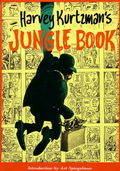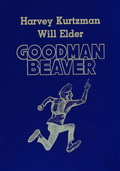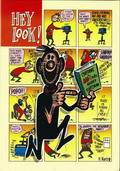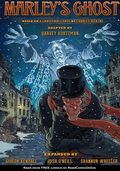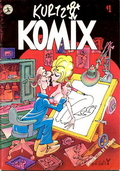harvey kurtzman
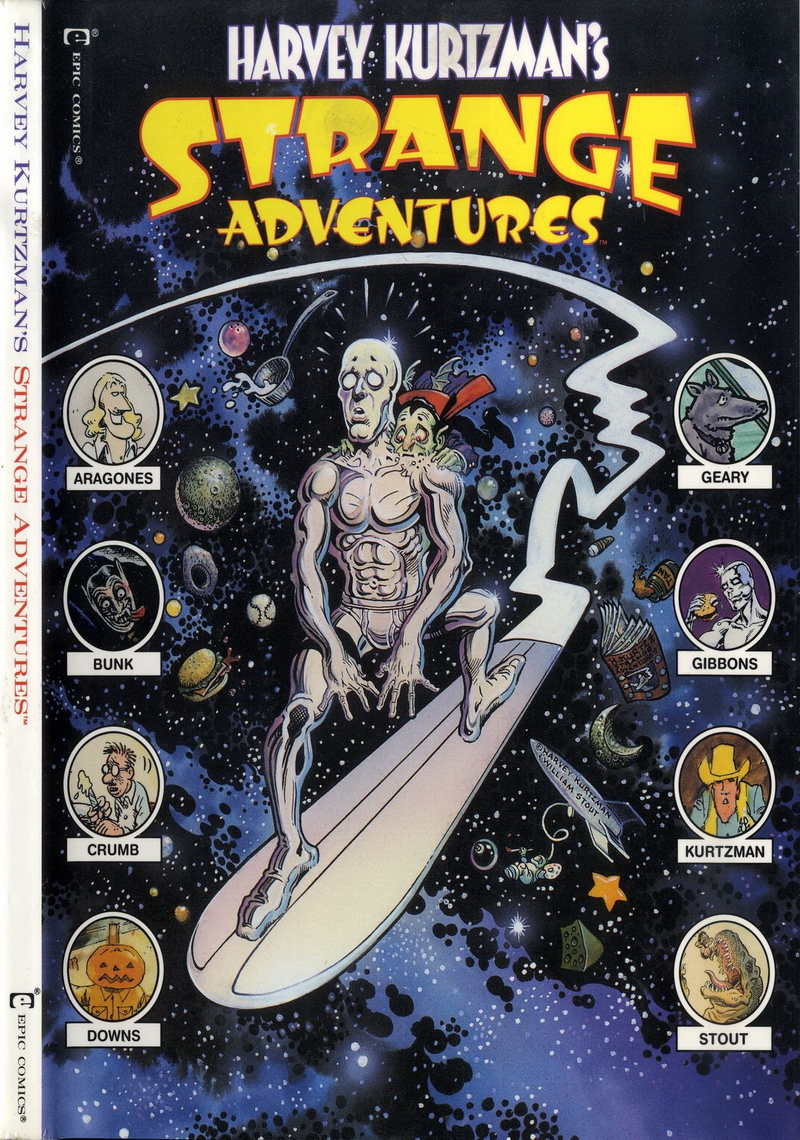
harvey kurtzman
Kitchen Sink et all 1959-1983
Harvey Kurtzman (/ˈkɜːrtsmən/; October 3, 1924 – February 21, 1993) was an American cartoonist and editor. His best-known work includes writing and editing the parodic comic book Mad from 1952 until 1956, and writing the Little Annie Fanny strips in Playboy from 1962 until 1988. His work is noted for its satire and parody of popular culture, social critique, and attention to detail. Kurtzman’s working method has been likened to that of an auteur, and he expected those who illustrated his stories to follow his layouts strictly.
Kurtzman began to work on the New Trend line of comic books at EC Comics in 1950. He wrote and edited the Two-Fisted Tales and Frontline Combat war comic books, where he also drew many of the carefully researched stories, before he created his most-remembered comic book, Mad, in 1952. Kurtzman scripted the stories and had them drawn by top EC cartoonists, most frequently Will Elder, Wally Wood, and Jack Davis; the early Mad was noted for its social critique and parodies of pop culture. The comic book switched to a magazine format in 1955, and Kurtzman left it in 1956 over a dispute with EC’s owner William Gaines over financial control. Following his departure, he did a variety of cartooning work, including editing the short-lived Trump and the self-published Humbug. In 1959, he produced the first book-length work of original comics, the adult-oriented, satirical Jungle Book. He edited the low-budget Help! from 1960 to 1965, a humor magazine which featured work by future Monty Python member and film director Terry Gilliam and the earliest work of underground cartoonists such as Robert Crumb and Gilbert Shelton. He brought Help! to an end after the success of the risqué Playboy feature Little Annie Fanny began to take up his time. While Annie Fanny provided much of his income for the rest of his career, he continued to produce an eclectic body of work, including screenwriting the animated Mad Monster Party? in 1967 and directing, writing and designing several shorts for Sesame Street in 1969.
From 1973, Kurtzman taught cartooning at the School of Visual Arts in New York. His work gained greater recognition toward the end of his life, and he oversaw deluxe reprintings of much of his work. The Harvey Award was named in Kurtzman’s honor in 1988. He was inducted into the Will Eisner Comic Book Hall of Fame in 1989, and his work earned five positions on The Comics Journal’s Top 100 Comics of the 20th Century.
In 1959, Ballantine Books was looking for something to replace its successful line of Mad mass-market paperback reprints after Gaines had taken it to another publisher. Ballantine had earlier published The Humbug Digest in the same format, though it fared poorly in the market. Kurtzman proposed a book of original material designed for the format, which Ian Ballantine, with reservations, accepted on faith out of respect for Kurtzman. Harvey Kurtzman’s Jungle Book was the first mass-market paperback of original comics content in the United States, and to Kurtzman biographer Denis Kitchen was a precursor to the graphic novel. Whereas his Mad stories had been aimed at an adolescent audience, Kurtzman made Jungle Book for adults, which was unusual in American comics. Jungle Book sold poorly, but remained a favorite among its small number of devoted fans. If it had been a success, Kurtzman intended to continue with more books in the same vein.
Help!’s most famous story[92] starred Kurtzman’s character Goodman Beaver in “Goodman Goes Playboy” in the February 1962 issue. The story satirized Hefner and his lifestyle, while parodying Archie comics in a much more risqué way than the previous “Starchie” parody in Mad had. The Archie characters were drinking, partying skirt-chasers home from college. Archie’s publishers sued, and Warren agreed to settle out of court rather than risk an expensive lawsuit. The actual target of the strip had however been Hefner, who loved it; Kurtzman began working for Hefner again soon after. Harvey Kurtzman’s Strange Adventures assembled a wide cast of cartoonists in 1990 to illustrate stories from Kurtzman’s layouts, though the book was not a success.
Kurtzman, who had suffered from Parkinson’s disease and colon cancer in later life, died at Mount Vernon, New York on February 21, 1993, of complications from liver cancer, nine months after Bill Gaines’ death. The New Yorker commissioned a commemorative cartoon by Will Elder and ran an elegy by writer Adam Gopnik. Cartoonist Jules Feiffer remarked at the time that cartooning had lost its Orson Welles.

